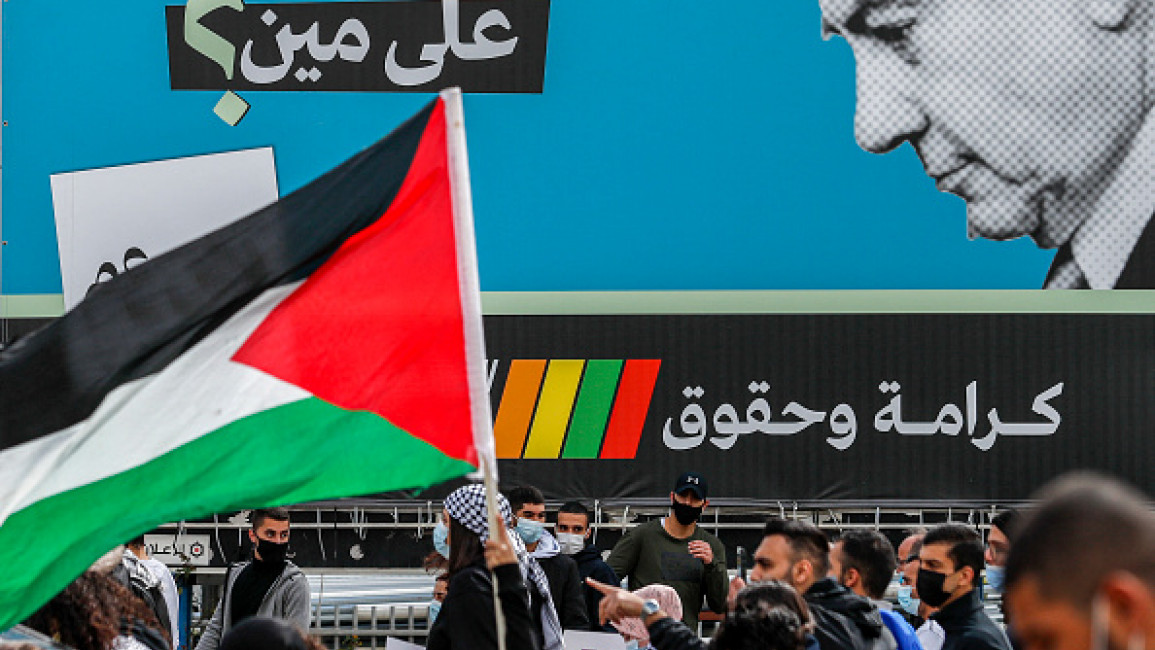1948 Palestinians: Low turnout expected at Israeli local elections amid Gaza war anger
Israeli municipal elections take place on Tuesday with turnout among 1948 Palestinians expected to be much lower than usual, despite fears that Israeli far-right candidates will be among the biggest winners.
Despite the serious challenges faced by Palestinian citizens of Israel - including drastic budget cuts, a violent crime epidemic, and growing Israeli extremism - many will likely stay at home due to anger and distress over the war on Gaza, which has so far killed 30,000 people.
In the mixed cities such as Jaffa, Haifa, Akka and Lod - where Palestinian and Jewish Israeli representatives work together within one municipality - some anticipate a rise in extremist Israeli representatives when the election results are announced mirroring a surge in support for the far-right during the last general election.
Palestinian lists in these towns have chosen to unify in a bid to elect the largest number of representatives possible to municipalities and confront the challenges together.
"These elections will be decisive, and the most important in the history of the Arab community for two reasons, firstly the escalation of crime in our community, which places a heavy burden on the work of the local authorities... and secondly, the policy of the Israeli government and the official establishment in Israel, which is a policy unprecedented in its extremism," said Omar Nassar, head of Arraba municipality.
"Successive official policies have oppressed us and deprived our society of all forms of development in infrastructure, building areas, education, welfare, and the economy… and now the current government wants to finish us off by depriving us of the already meagre and scarce budgets."
The current Israeli government, including far-right Finance Minister Bezalel Smotrich, has already announced major budget cuts including a 15 percent reduction in funding for developmental programmes and anti-crime initiatives in Palestinian communities, in addition to 5 percent across-the-board cuts to every ministerial budget.
The growing far-right
Mudar Younis, head of the National Committee of Heads of Arab Local Authorities, also mayor of Wadi Ara, won't be standing in Tuesday's elections.
"There's been an escalation in violence and crime, which has affected local authorities generally, amid a general atmosphere which hasn't been easy. With the arrival of the current government, policies have changed wholesale," he said.
He didn't rule out criminal organisations imposing themselves on Arab authorities but believes this fits with the state's general policy against Palestinian citizens of Israel.
"Our concern will be greater after the war, because... the trend on the Israeli street is going further towards extreme right positions, in the local authorities and in general. Even those who could have been called left or centre, it is very difficult to say that about most of them today," he said.
"We aren’t [considered] citizens with rights, instead the official establishment bargains with us by tying our budgets to specific behaviours by our community and authorities."
How Israel's far-right became the new mainstream
— The New Arab (@The_NewArab) November 10, 2022
✍ @semssami
#IsraelElections https://t.co/JnPq07VVur
Younis said the national committee is the "greatest real representation" the Arab community has - as mayors are directly elected by the public - and when acting as a cohesive unit it is an essential tool in "combatting the policies the government is trying to impose on us".
"There is no doubt the situation is worrying as is the general atmosphere due to the war... which is leading to an abstention from the elections, but this is a must," he said.
"Also, many people suitable for candidacy have refrained from running in the elections for local authorities, whether for presidency or membership, and this is worrying."
Municipal elections take place every five years in Israel, with mayors and local council heads elected in 197 municipal authorities and 44 regional councils. Tuesday's vote was originally scheduled for October 2023 but has been postponed twice.
This article is based on an article which appeared in our Arabic edition by Nayif Zidane on 27 February 2024. To read the original article click here.



